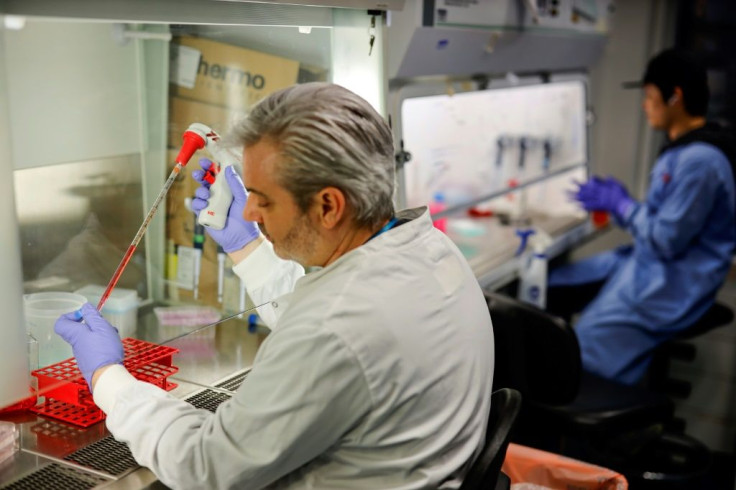Virus-stung UK Banks On Vaccine Drive
Britain has the world's second-highest death toll in the coronavirus pandemic, and has faced sustained criticism for its response to the outbreak.
But Prime Minister Boris Johnson's government is touting the country as a global leader in the big-money investment race to find a vaccine.
Ministers claim two studies in particular -- at Oxford University and Imperial College London -- are "frontrunners" in the international effort.
Oxford has now received more than ?85 million ($104 million, 95 million euros), and Imperial nearly ?43 million, in British state funding.
Meanwhile, it is hoped a new "manufacturing innovation centre" can provide enough doses of any vaccine for everyone in Britain within six months from next year.
At the same time, the government has pledged ?388 million to an international drive to develop vaccines, tests and treatments, and hosts an online pledging conference for vaccine alliance GAVI on June 4.
"The UK continues to lead the global response to find a vaccine, and the government is backing our scientists to do this as quickly as possible," Business Secretary Alok Sharma said on Sunday as he announced further funding.
Oxford's effort involves its multidisciplinary Vaccine Group, set up in 1994 to study new and improved inoculations, and the Jenner Institute, which works on both human and livestock diseases.
Its hoped-for vaccine is based on a chimpanzee adenovirus -- a common cold virus -- which has been genetically changed to stop COVID-19 replicating in humans.
The first of three trial phases began in healthy adults in April, with more than 1,000 immunisations completed. The next stage will see 10,260 adults and children from a broader age range assessed.
According to the World Health Organization, which counts 118 different projects globally, Oxford's is one of only eight potential coronavirus vaccines to have started trials.
"The clinical studies are progressing very well," Andrew Pollard, head of the Oxford Vaccine Group, said on Friday.
The university and pharma giant AstraZeneca have meanwhile signed a deal which could see up to 30 million of 100 million doses for the UK market available by September.
On Thursday, the firm said it had obtained more than ?820 million from the United States to help fund production, and has the capacity for one billion doses.
At Imperial, its department of infectious diseases has been testing a so-called RNA vaccine specimen in animals since February.

It uses a form of genetic coding to create an inoculation which delivers instructions to muscle cells to provoke an immune response to COVID-19.
Testing is due to start in mid-June before larger-scale trials in October.
But Imperial's Robin Shattock warned: "Generating doses of the vaccine is very different to having the necessary data to show that any vaccine is both safe and effective against COVID-19.
"While UK scientists are actively working on different vaccine approaches there is no guarantee that any individual approach will work."
As well as high-profile companies and institutions, smaller pharma players such as Stabilitech, in southern England, are also involved in the search.
The company is taking a different approach by working on a potential oral vaccine instead of injectable alternatives.
Ingested in a capsule into the gut, its method aims to prompt an immune response in mucosal cells in the respiratory system and elsewhere in the body.
The firm believes that will be more effective in tackling respiratory illnesses like coronavirus.
"We can use today's genetic engineering to make a vaccine that goes into the gut and delivers its payload," executive chairman Wayne Channon told AFP.
That gives "a much stronger reaction", he added.
It has redirected a ?300,000 government grant -- originally earmarked for work on a Zika vaccine -- to its COVID-19 endeavour, but has applied for another ?5 million in state support.
Trials are due to begin in July with 50 participants, increasing to 250 then several thousand. If successful, it hopes to begin mass production by next year.
The wave of announcements about trials and initial results has stoked optimism about a potential vaccine for COVID-19, as the number of cases and deaths worldwide climbs.
"The likelihood of developing a vaccine... that has some measurable effectiveness and does not have unacceptable side-effects is pretty high although not certain," said Adam Finn, paediatrics professor at Bristol University.
But he added: "What is more difficult to predict is how long it will take to get there and how well the vaccine(s) will work."






